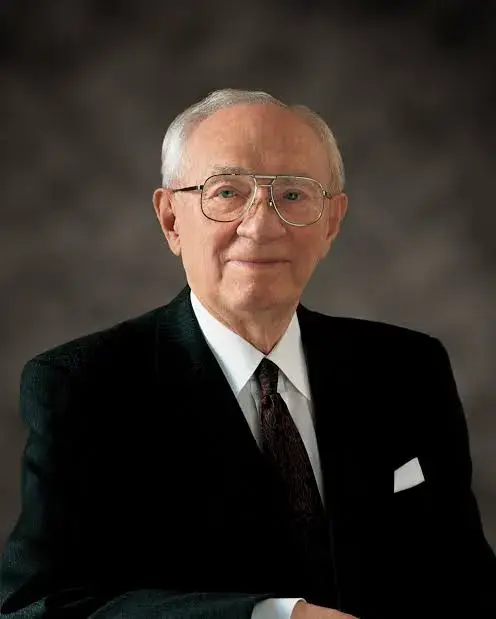Applying Editing Principles to Living the Gospel
- Juneffer Binti Sabastian Goh
- Jun 4, 2025
- 3 min read

Have you ever stared at a rough draft, overwhelmed by the jumble of words, knowing there's a powerful message buried within but unsure how to bring it out? Life, especially our journey of discipleship, can feel strikingly similar. We strive to live the gospel, yet often feel like imperfect first drafts – full of good intentions mixed with mistakes, inconsistencies, and awkward phrasing.
President Gordon B. Hinckley offered profound, practical encouragement: "We can do a little better than we have been doing. We can be a little more kind. We can be a little more merciful. We can be a little more forgiving. We can put behind us our past weaknesses and go forth with new energy and increased resolution to improve the world about us…"
This call resonates powerfully with editing principles. What if we viewed our daily efforts to live the gospel as obedience and an ongoing process of refining our spiritual "draft"?
As I studied this principle, I was able to distinguish some of how editing principles can illuminate our path by comparing their similarity with the gospel application.
Revision is Essential

Editing Principle: No masterpiece springs forth perfectly. Revision is where the real work happens – refining ideas, clarifying meaning, strengthening structure.
Gospel Application: Hinckley's "Little Better" is the essence of daily revision. It's recognizing yesterday's short temper and consciously choosing patience today. It's reviewing our prayers and striving for more sincerity. It's reassessing our service and looking for one more small act of kindness. We don't scrap the whole draft; we revise specific lines based on the behaviors, thoughts, and habits.
Proofreading for Specific Errors - Kindness, Mercy, Forgiveness:
Editing Principle: Proofreading targets concrete errors: typos, grammatical slips, punctuation mistakes. It requires focused attention to detail.
Gospel Application: Hinckley highlights specific areas for proofreading our souls: kindness, did that remark build up or tear down?; mercy, did I judge harshly or offer to understand?; forgiveness, am I holding onto that grudge? Each day, we can proofread our interactions and internal dialogue, correcting these specific "errors" as we encounter them, and be the meticulous proofreader of our hearts.
Cutting the Clutter by Putting Weaknesses Behind:
Editing Principle: Good editing often involves ruthless deletion – removing redundant words, unnecessary tangents, and passages that don't serve the core message. I have to say that the "delete" key is powerful.
Gospel Application: "Put behind us our weaknesses of the past" is the divine delete key. It's repentance and the Atonement in action. It means consciously cutting out habits, thoughts, or attitudes that clutter our spiritual progress and weigh us down. Holding onto past mistakes or weaknesses is like keeping paragraphs that weaken the narrative. Let them go through Christ's grace.
Developmental Editing: Seeing the Bigger Picture and Improve:
Editing Principle: Developmental editing looks at the overall structure, flow, coherence, and impact of the entire piece. Does it achieve its purpose? Does it resonate?
Gospel Application: Hinckley urges us to "go forth with new energy and increased resolution to improve the world about us." This is the big-picture edit. How do our revised behaviors (more kindness, mercy, forgiveness) and decluttered spirit (released from past weaknesses) contribute to the overall narrative – building Zion in our homes, workplaces, and communities? Are our daily revisions aligning with the grand purpose of the gospel: to love God and serve others?
Seeking Clarification from The Role of Community & Spirit):
Editing Principle: Great editors know they need an outside perspective. Beta readers, critique partners, and editors provide invaluable feedback the author might miss.
Gospel Application: We don't edit our lives in isolation. The Holy Ghost is our ultimate divine editor, prompting corrections and highlighting areas for improvement. Our church community, family, friends, and trusted leaders act as our "beta readers," offering support, perspective, and sometimes necessary (though gentle!) critiques. Be open to feedback.
Living the gospel isn't about achieving flawless, final-publication perfection in this life. As President Hinckley implies, we are constantly revising. By embracing the process of editing: the daily proofreading of our actions, the courageous cutting of flaws, the constant revision towards greater Christlikeness, and the focus on how our edits contribute to the masterpiece God is creating in the world.

So, today, don't despair at the imperfections in your draft. Grab your spiritual red pen. Look for one specific way to be "a little more kind," one opportunity to extend "a little more mercy," and one instance to practice "a little more forgiveness." Hit delete on a past weakness holding you back. Then, go forth with that "new energy" – your divine draft is a work in progress, and every edit brings it closer to reflecting the light of the Author and Finisher of our faith. The world needs your revised, improved, and ever-more-loving story.



Comments